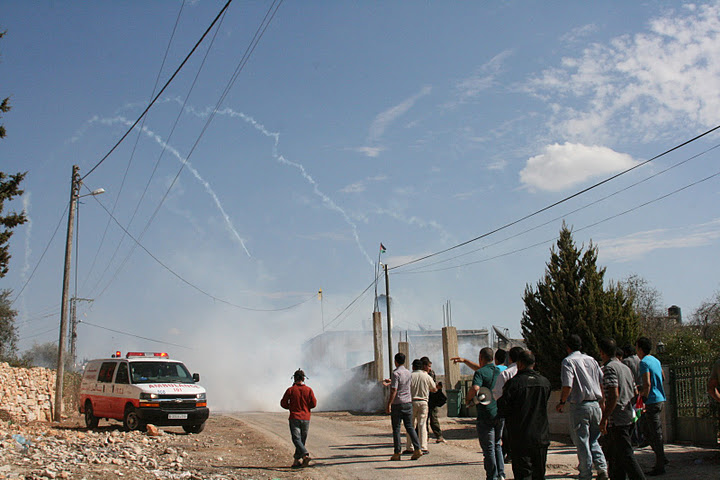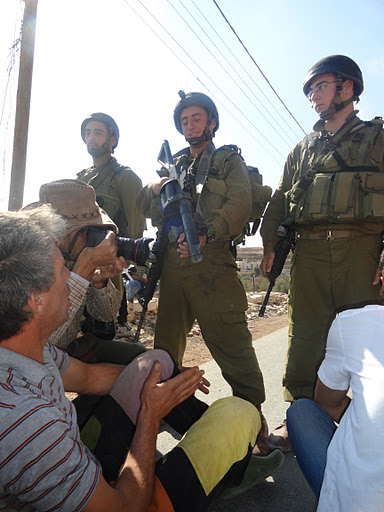Month: October 2011
-
“With children visible” Israeli military assaults Kufr Qaddoum
by Rana H. 28 October 2011 | International Solidarity Movement, West Bank Soldiers fired teargas directly into crowd at peaceful protesters in Kufr Qaddoum. Internationals and Palestinians, including children, were gathered behind barbed wire that runs across their main road, and were not advancing when soldiers began to fire around ten canisters of tear gas…
-
New Israeli military tactic: Headbutting in Al- Ma’asara
by Alistair George 28 October 2011 | International Solidarity Movement, West Bank The Israeli military violently obstructed a peaceful demonstration against the Israeli separation wall in Al-Ma’sara, near Bethlehem, today. Around 25 Palestinians and a similar number of international observers marched from the village at 12:20 PM today and attempted to reach olive groves on…
-
Tel Rumeida: International observers and Palestinians alike targeted by checkpoints
by Alistair George 27 October 2011 | International Solidarity Movement, West Bank The Israeli military is continuing to harass and intimidate Palestinians and international volunteers at checkpoints throughout Tel Rumeida, Hebron. On 25 October 2011, around 7.15pm, a Palestinian woman was held at checkpoint56 inTel Rumeida for around an hour after refusing to pass through…


